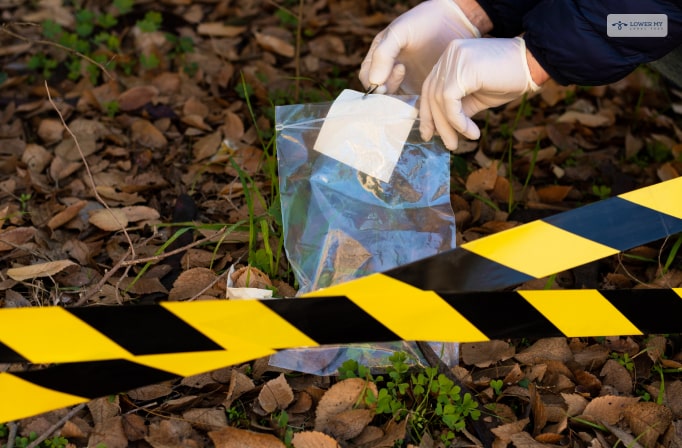Absolutely, I’d love to share my knowledge on this topic! The court must establish each and every element of the accusation beyond a reasonable doubt to find the defendant guilty. Let’s explore this fascinating topic together with a positive and optimistic outlook.
Element Of A Crime: Definition

Have you ever watched those crime dramas on TV where they try to prove someone guilty or innocent? They always mention the “element of a crime,” but it’s not as complicated as it sounds. Think of it like building blocks for a criminal offense. To prove someone committed a crime, the prosecutor has to show that all those specific pieces are in place. It’s kind of like making a sandwich; you need bread, cheese, and maybe some ham for a ham and cheese sandwich. Similarly, to prove an act as an offense, you need certain elements of a crime.
What Are The Elements Of A Crime?

If you want to show that someone committed a crime, you’ll need to prove the elements of the crime. It’s kind of like when you’re making your favorite dish, and you need all the right ingredients. Just like how a cake needs flour, sugar, and eggs, a crime needs certain things to be present in order for someone to be considered guilty. These elements are like the building blocks to figuring out whether someone committed the crime or not.
The elements that must exist for a person to be convicted of a crime include:
Actus Reus (Guilty Act)
Let’s explore the first piece of the puzzle: the actus reus. By establishing this initial step, we can move forward with building a solid case and seeking justice for all parties involved. Let’s remain positive and hopeful for a fair and just outcome.
Mens Rea (Guilty Mind)
The second vital element is the mental state of the person committing the crime. This generally includes intent, knowledge, recklessness, or negligence, depending on the specific offense.
For instance, for a crime like murder, the prosecution needs to demonstrate that the accused had the intention of causing the death.
Causation
This element of the crime connects the actus reus (guilty act) to the harm or result that occurred. In other words, it establishes that the actions of the accused caused the crime’s consequences.
Concurrence
This element of the crime connects the actus reus (guilty act) to the harm or result that occurred. In other words, it establishes that the actions of the accused caused the crime’s consequences.
Attendant Circumstances
Sometimes, crimes involve additional details or circumstances that are critical to the case.
Result
Certain crimes require a specific outcome or result. For instance, arson involves the burning or charring of property as a result of the act. So, establishing this result is vital in such criminal cases.
In essence, these elements are like puzzle pieces that must fit together perfectly. That means you can’t say for sure that a crime happened.
This is why we have a system that ensures fairness and prevents wrongful convictions. Knowing these elements helps us make sense of how the legal system works and how crimes are prosecuted.
Frequently Asked Questions (FAQs) Related To Elements Of Crime
Prosecutors use evidence, witnesses, and legal arguments to establish each element beyond a reasonable doubt. In court, lawyers can use different types of evidence to prove that a crime occurred. This can include physical evidence, witness statements, expert opinions, and other forms of proof.
Actus reus refers to the physical act or conduct that constitutes a criminal offense. It involves demonstrating that the accused engaged in a specific prohibited action or behavior.
Mens rea pertains to the mental state or intent of the person committing the act. It involves proving that the accused had a guilty state of mind, such as the intent to commit the crime or knowledge that their actions were unlawful.
Causation establishes a direct link between the accused’s actions (actus reus) and the harm or result that occurred. It’s essential to demonstrate that the criminal act was the cause of the outcome.
Attendant circumstances are the additional details or facts surrounding a crime that are necessary to establish guilt. They can include factors like time, place, and specific conditions related to the offense.
No, the elements of a crime can vary widely depending on the specific offense. Different crimes have unique elements tailored to the nature and seriousness of the offense.
Remember that the legal system and its interpretation can differ by jurisdiction, so it’s essential to consult legal professionals or references specific to your region for precise information regarding the elements of a particular crime.
Conclusion
Now, you have a fair idea of the various elements of crime through this article. If you still have queries regarding what constitutes a crime, get assistance from an experienced criminal lawyer.
Hope you have found this article useful and informative.
Read Also:






